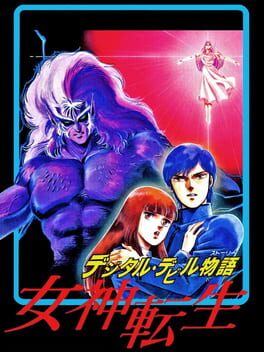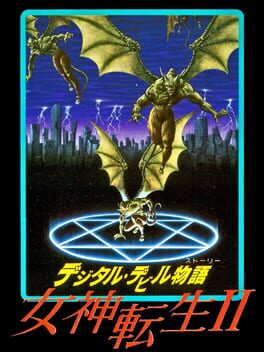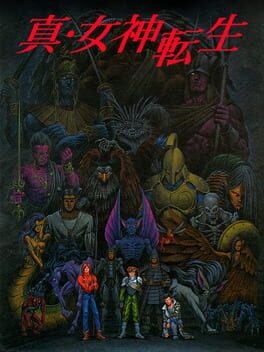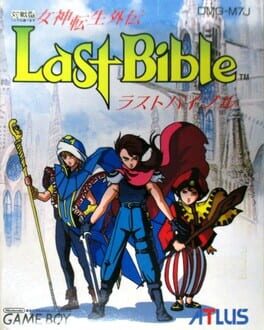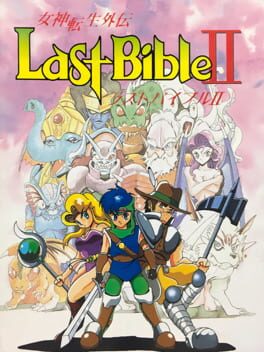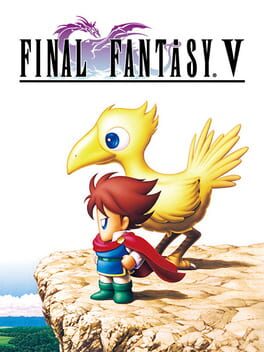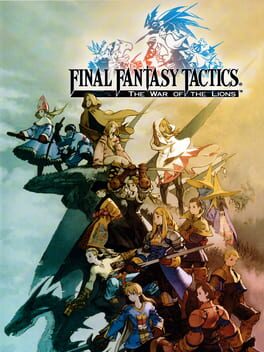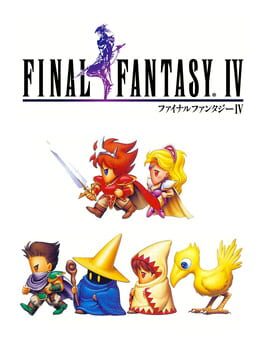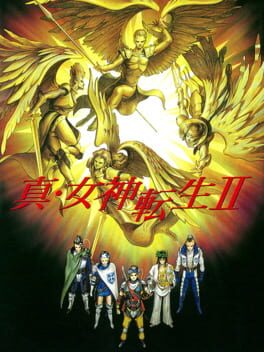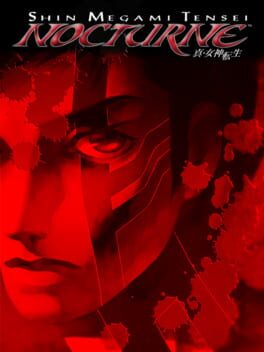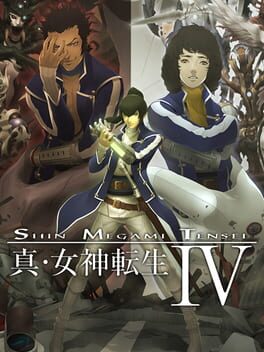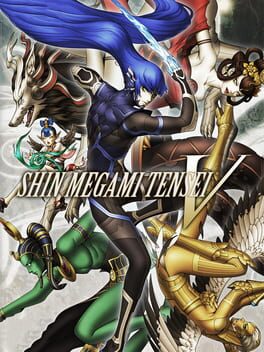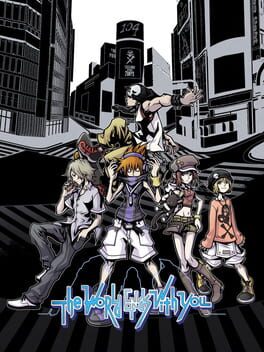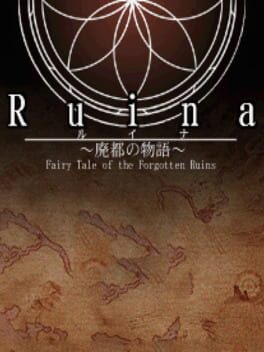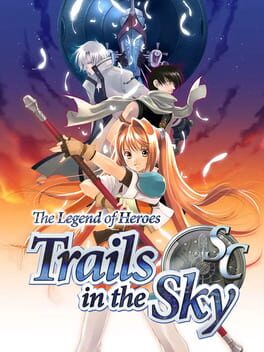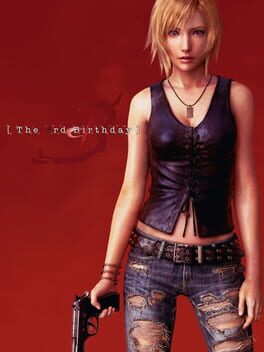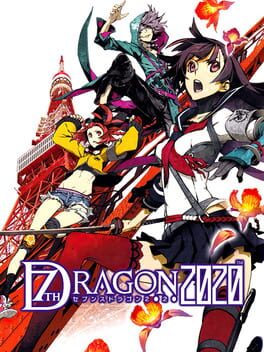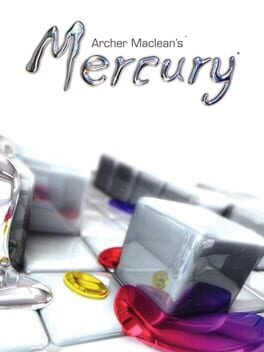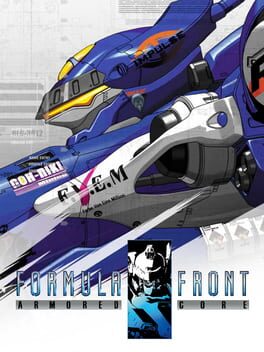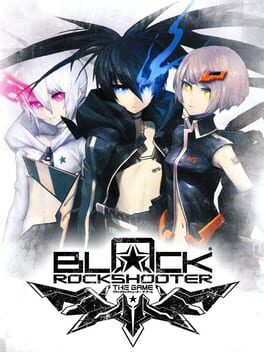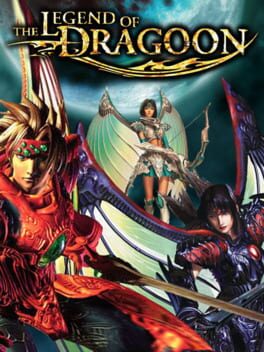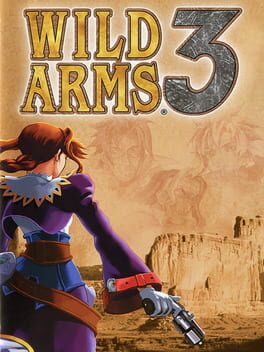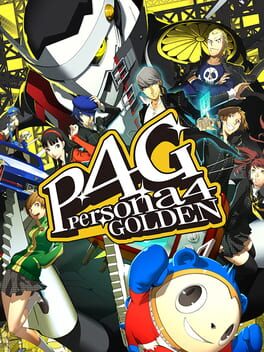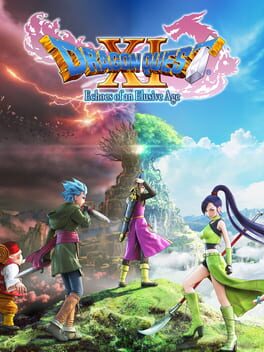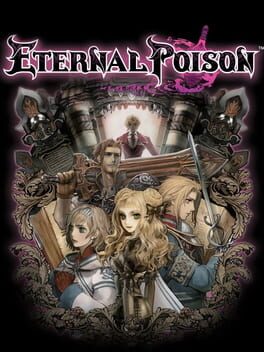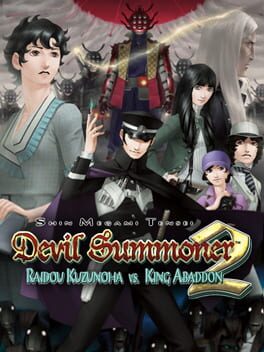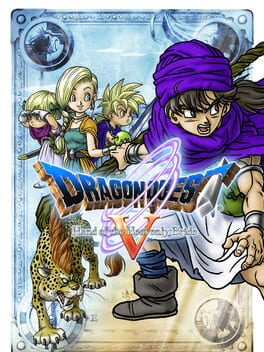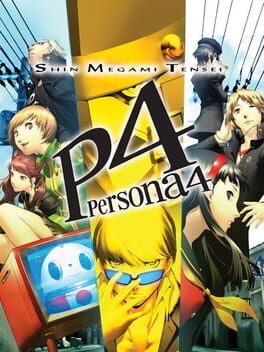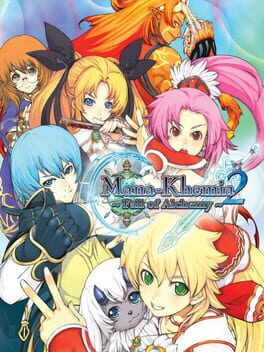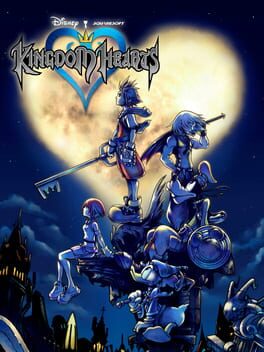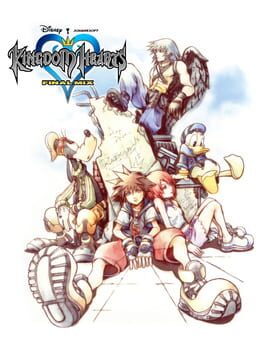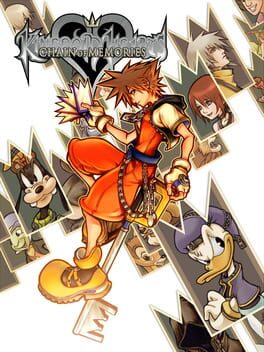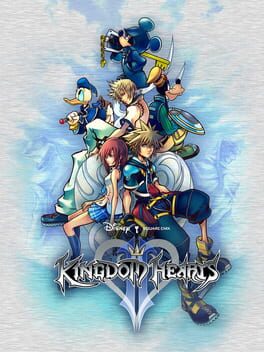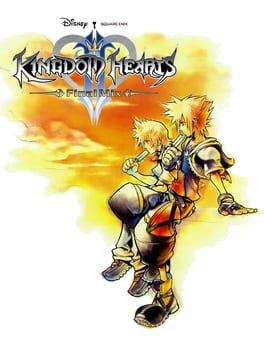Shirayuri
3 reviews liked by Shirayuri
Final Fantasy VI
1994
If you're as disillusioned with the state of video game comedic writing as I am, then I can't recommend Moon enough. The Undertale inspiration is beyond apparent, but, thankfully, Toby Fox-esque dialogue isn't. Instead, it's written more like a golden age point-and-click, in which every character subscribes to the same sort of backwards logic that you have to make sense of in order to progress. This degree of committal, to me, is what separates retro quirk from modern indie quirk, which typically means presenting the player with a series of jokey, half-sarcastic statements that more often than not clash with the setting rather than characterizing it. And the setting's really everything in Moon, which tasks some kid (who I named "Sirloin," for some reason) with collecting love from the citizens of Love-de-Gard through various means. The more love you get, the further you can venture outside without having to sleep, which gives you more leeway into tracking the villagers' day/night and weekly schedules and allows you to reach new locations on your own accord. The same giddy feeling of planning out how to be in the right place at the right time that would later make Majora's Mask great is present here, but it's also amplified by the fact that you have to earn the ability to even be there. You're not guaranteed three full days, you have to work your way up to that point first. Moon's other stroke of genius comes with it being solely composed of sidequests that all reward you the same thing. Hit a wall in a typical point-and-click and you're done progressing until you eventually flail towards the correct answer, but getting stuck in Moon simply means you get to pursue a different avenue to obtain love. Your character's slow movement speed also gives you plenty of opportunity to consider possible solutions, more or less diffusing the feeling of wasting your time that usually comes packaged with any contextual puzzle game. The cherry here is the game's story, which you really have to stumble upon all by yourself. It's all about collecting love, until it isn't, of course, and it's easy to see how railroading could defeat the entire purpose.
Where Moon succeeds on a mechanical front, however, it often disappoints in the satiric sense... or, at least, that's what the first few hours led me to believe. It starts off as a surface-level subversion of JRPG tropes, positing a protagonist that's really a bully and monsters that are misunderstood animals, but, eventually, the hero fades away from the story, allowing Sirloin to create one of his own. Moon isn't simply a base parody or some milquetoast statement on love being the most important power of all, but a past tense coming-of-age story, a portrait of a very specific type of innocence loss using the framework of video games. We've all been there. Believing that L was real, that the truck in Vermillion City was blocking something important, that Sephiroth could be recruited into your party, or that Sonic was an unlockable character in Melee. The idea that games extended beyond the walls of your TV, housing unexplainable worlds where anything and everything could happen. Judging by Minecraft's Herobrine, this is a phenomenon that transcends both generations and philosophies of game design. But, at some point, we lost the ability, or perhaps the willingness, to reenter this state of mind. Play enough games and you realize there's a limit to what they're capable of, that there are certain rules that all developers more or less follow. This is what the fake/real dichotomy on the cover art refers to, and it's also something that's baked into how Moon works at its core. Learn enough about this world and you begin to find out that there's more to it than meets the eye, doing this also gives you the ability (or, the desire) to spend more time here. Spend too much time here and the seams start to show. Routines become too predictable, dialogue repeats itself, and the solipsistic nature of video games fully sets in. What adds to this is how consistently it subtly hints towards the boundary between fake and real. Take, for instance, this line. One on side of the spectrum, it serves to characterize Minister's anality (think "always watching, Wazowski") but on the other, it's a nod towards his ultrasimple AI. After all, any game trying to create the illusion of real characters would certainly avoid directly stating that doing X will always cause someone to do Y. Moon's puzzles also frequently point towards this separation. In gamespeak, someone telling you to look at a painting means that the player is supposed to physically study its graphical asset for clues, but in Moon, you actually have to literally position your character in front of it and wait for a few moments. This one briefly stumped me- I had to come back to it after awhile to figure it out, in other words, I was effectively punished for being on the "fake" end of the spectrum. I could harp on how Moon could've given you a few more reasons to hang out in town, or how the clock stops feeling like it matters too soon, or how it contains the most banal fishing minigame yet conceived by man, but it's hard to argue against how elegantly it ties its themes into how it plays. There's a reason why the tone's so somber, and why so many of the characters are trying to reignite some long lost spark. The Sirloin that your Gramby knew and loved is gone, replaced by a ghost wearing his clothes, while she lies in bed, Claire de Lune softly playing in the background. Once that dragon's slain, there's no going back.
Stop browsing Backloggd, and go to bed!
Where Moon succeeds on a mechanical front, however, it often disappoints in the satiric sense... or, at least, that's what the first few hours led me to believe. It starts off as a surface-level subversion of JRPG tropes, positing a protagonist that's really a bully and monsters that are misunderstood animals, but, eventually, the hero fades away from the story, allowing Sirloin to create one of his own. Moon isn't simply a base parody or some milquetoast statement on love being the most important power of all, but a past tense coming-of-age story, a portrait of a very specific type of innocence loss using the framework of video games. We've all been there. Believing that L was real, that the truck in Vermillion City was blocking something important, that Sephiroth could be recruited into your party, or that Sonic was an unlockable character in Melee. The idea that games extended beyond the walls of your TV, housing unexplainable worlds where anything and everything could happen. Judging by Minecraft's Herobrine, this is a phenomenon that transcends both generations and philosophies of game design. But, at some point, we lost the ability, or perhaps the willingness, to reenter this state of mind. Play enough games and you realize there's a limit to what they're capable of, that there are certain rules that all developers more or less follow. This is what the fake/real dichotomy on the cover art refers to, and it's also something that's baked into how Moon works at its core. Learn enough about this world and you begin to find out that there's more to it than meets the eye, doing this also gives you the ability (or, the desire) to spend more time here. Spend too much time here and the seams start to show. Routines become too predictable, dialogue repeats itself, and the solipsistic nature of video games fully sets in. What adds to this is how consistently it subtly hints towards the boundary between fake and real. Take, for instance, this line. One on side of the spectrum, it serves to characterize Minister's anality (think "always watching, Wazowski") but on the other, it's a nod towards his ultrasimple AI. After all, any game trying to create the illusion of real characters would certainly avoid directly stating that doing X will always cause someone to do Y. Moon's puzzles also frequently point towards this separation. In gamespeak, someone telling you to look at a painting means that the player is supposed to physically study its graphical asset for clues, but in Moon, you actually have to literally position your character in front of it and wait for a few moments. This one briefly stumped me- I had to come back to it after awhile to figure it out, in other words, I was effectively punished for being on the "fake" end of the spectrum. I could harp on how Moon could've given you a few more reasons to hang out in town, or how the clock stops feeling like it matters too soon, or how it contains the most banal fishing minigame yet conceived by man, but it's hard to argue against how elegantly it ties its themes into how it plays. There's a reason why the tone's so somber, and why so many of the characters are trying to reignite some long lost spark. The Sirloin that your Gramby knew and loved is gone, replaced by a ghost wearing his clothes, while she lies in bed, Claire de Lune softly playing in the background. Once that dragon's slain, there's no going back.
Stop browsing Backloggd, and go to bed!
"Whatever happens inside these scrunched, wrinkled fiber-bags of rotten-fruit-colored chopped hollow jumbo spaghetti bits is an accident of liquid physics. Our sentimentality is a coincidence. We are no smooth earnest factories; we are no diagram-perfect assembly lines. We are crowded hard bags of accidents down through which blood and other juices leak; we squeeze and our liquids spurt and rise. We must know the stupidity of this meat and we must permit it to terrify us. We must be afraid of this deadness. We must love each other. It is ridiculous if we do not"
-"just like hamburger;exactly like hamburger" by tim rogers
moon is a game that has been a phenomenon for many, many years, despite a whole lot of people probably having never played it until just this past year. my favorite game of All Time, undertale, owes a lot of its existence to moon's, and toby fox hasn't played it. before you play moon, you are immediately intrigued by moon and need to know more. it is a game that is equal parts obtuse 90s point 'n' click, social simulator and treatise on disarming ourselves and living (and more importantly LOVING) authentically. knowing about moon is a secret badge of honor among the in-the-know, or at least it was until its new translation and rerelease on modern hardware made the barrier of access 20 dollars instead of knowing japanese or using the gamefaqs guide to play a ROM or whatever.
but what about playing moon? a game that describes itself a remix rpg adventure makes it sound a little more complex than it is. it's at its core an adventure game that prides itself on telling you absolutely nothing and absolutely everything. a good portion of the game's puzzles require precise timing, memorizing patterns of both npcs and the environment, and the ability to navigate through surreal dialogue and cutscenes to work things out. but i think the developers also want you to collaborate as you play moon, as many games being developed in the early days of the internet wanted you to. part of my enjoyment of moon was reading along with a walkthrough, one with a writer sharing their own opinions and thoughts and strategies and victories and losses with me. they gave me their love in guiding me through this game, and this review is my best attempt at giving it back. gamefaqs user parrotshake, i love the living shit out of you.
moon's narrative is probably the key reason most people are here, and seeing what there is to see here is like finding a stone tablet with an ancient language's alphabet and grammatical rules inscribed onto it. understanding moon makes me understand a good 30 years of japanese game devleopment much more clearly. a lot has been said about how the developers at love-de-lic disseminated themselves into other studios like square and grasshopper manufacture, and their influence can be felt in games those people never touched. there's obvious titles like deadly premontion and undertale, but i also think games like persona 3 and final fantasy x took some of this game's philosophy to heart. and what a philosophy! in moon, a boy is trapped in his television or dreaming or something and has to pick up the pieces in the wake of destruction left by a traditonal jrpg hero. the most impactful of this for me was bringing the various killed animals back to life, and how much of this game's world is tied deeply to animals. they're deities, they're lifegivers and they're friends. saving perogon or exorcising gramby's summonbeast left me feeling so completely content, to see these characters whose lives were torn asunder by forces beyond their comprehension doing things they aren't supposed to be doing, and then lifting them out of their misery or saving them from it is a joyous act that moon revels in.
the whole game is joyous, it begs you to explore at your own pace and figure out the main story when you feel up for it, if you feel up for it. there's rarely any major pressure and for the most part its equally beneficial to watch filby fly his kite as it is to assemble pieces of a rocket ship. it's less elaborate puzzle box and more a series of events that seem almost unconcerned with the player's intervention or not, even though the player always brings about positive changes and helps the people in the game. it's nice to help people, it's nice to love people, even creepy cultists in the woods who make you memorize their stupid faces or wannabe idols or your grandma who's losing it and isn't fun to be around anymore.
the machines we inhabit are only going to fail us, eventually we will all be out in the woods desperate for someone to sing and dance and recite poems with us or play rock paper scissors with us or walk out dog when we're sick to. moon taught me to love the machine, even when the machine fails me and the machine doesn't want to work and when the machine ends up snapping us in two over and over again. open the door.
-"just like hamburger;exactly like hamburger" by tim rogers
moon is a game that has been a phenomenon for many, many years, despite a whole lot of people probably having never played it until just this past year. my favorite game of All Time, undertale, owes a lot of its existence to moon's, and toby fox hasn't played it. before you play moon, you are immediately intrigued by moon and need to know more. it is a game that is equal parts obtuse 90s point 'n' click, social simulator and treatise on disarming ourselves and living (and more importantly LOVING) authentically. knowing about moon is a secret badge of honor among the in-the-know, or at least it was until its new translation and rerelease on modern hardware made the barrier of access 20 dollars instead of knowing japanese or using the gamefaqs guide to play a ROM or whatever.
but what about playing moon? a game that describes itself a remix rpg adventure makes it sound a little more complex than it is. it's at its core an adventure game that prides itself on telling you absolutely nothing and absolutely everything. a good portion of the game's puzzles require precise timing, memorizing patterns of both npcs and the environment, and the ability to navigate through surreal dialogue and cutscenes to work things out. but i think the developers also want you to collaborate as you play moon, as many games being developed in the early days of the internet wanted you to. part of my enjoyment of moon was reading along with a walkthrough, one with a writer sharing their own opinions and thoughts and strategies and victories and losses with me. they gave me their love in guiding me through this game, and this review is my best attempt at giving it back. gamefaqs user parrotshake, i love the living shit out of you.
moon's narrative is probably the key reason most people are here, and seeing what there is to see here is like finding a stone tablet with an ancient language's alphabet and grammatical rules inscribed onto it. understanding moon makes me understand a good 30 years of japanese game devleopment much more clearly. a lot has been said about how the developers at love-de-lic disseminated themselves into other studios like square and grasshopper manufacture, and their influence can be felt in games those people never touched. there's obvious titles like deadly premontion and undertale, but i also think games like persona 3 and final fantasy x took some of this game's philosophy to heart. and what a philosophy! in moon, a boy is trapped in his television or dreaming or something and has to pick up the pieces in the wake of destruction left by a traditonal jrpg hero. the most impactful of this for me was bringing the various killed animals back to life, and how much of this game's world is tied deeply to animals. they're deities, they're lifegivers and they're friends. saving perogon or exorcising gramby's summonbeast left me feeling so completely content, to see these characters whose lives were torn asunder by forces beyond their comprehension doing things they aren't supposed to be doing, and then lifting them out of their misery or saving them from it is a joyous act that moon revels in.
the whole game is joyous, it begs you to explore at your own pace and figure out the main story when you feel up for it, if you feel up for it. there's rarely any major pressure and for the most part its equally beneficial to watch filby fly his kite as it is to assemble pieces of a rocket ship. it's less elaborate puzzle box and more a series of events that seem almost unconcerned with the player's intervention or not, even though the player always brings about positive changes and helps the people in the game. it's nice to help people, it's nice to love people, even creepy cultists in the woods who make you memorize their stupid faces or wannabe idols or your grandma who's losing it and isn't fun to be around anymore.
the machines we inhabit are only going to fail us, eventually we will all be out in the woods desperate for someone to sing and dance and recite poems with us or play rock paper scissors with us or walk out dog when we're sick to. moon taught me to love the machine, even when the machine fails me and the machine doesn't want to work and when the machine ends up snapping us in two over and over again. open the door.
11 lists liked by Shirayuri
by niseyyxy |
91 Games
by Lawren |
43 Games
by calebthemage |
48 Games
by RyukiJPN |
25 Games
by railgun233 |
71 Games
by chandler |
89 Games
by newtontlod |
185 Games
by villaverd |
117 Games
by villaverd |
140 Games
by HiddenKey |
19 Games


